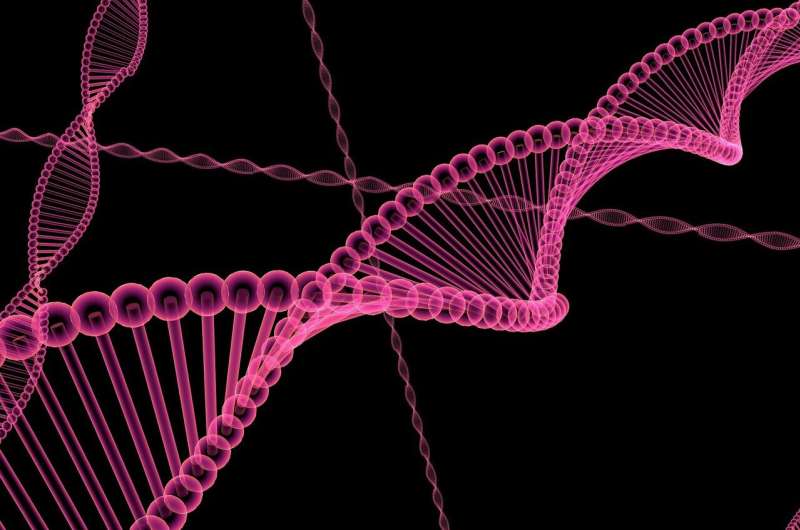This article has been reviewed according to Science X's editorial process and policies. Editors have highlighted the following attributes while ensuring the content's credibility:
fact-checked
peer-reviewed publication
trusted source
proofread
Yeast meiosis study finds temperature changes result in shorter meiotic chromosome axes and more crossovers

In a study of meiosis in budding yeast, a research team found that yeast senses temperature changes by increasing the level of DNA negative supercoils to increase crossovers and modulate chromosome organization during meiosis.
Meiosis is a specialized cell division producing gametes with the half chromosome complement of their progenitor cells. Meiotic crossovers between homologous (maternal and paternal) chromosomes, which result in the reciprocal exchange of chromosome fragments, play two important roles: physically holding the homologous chromosomes together to ensure their proper segregation, and promoting the genetic diversity of their progeny.
The formation of crossovers is regulated by the architecture of meiotic chromosomes, each of which is organized as a linear array of loops anchored at their bases to a proteinaceous axis.
The researchers studied yeast meiosis, and found that changes in temperature (either decreased or increased) resulted in shorter meiotic chromosome axes and more crossovers. The research teams further found that temperature changes coordinately enhanced the hyperabundant distribution of axis proteins (such as Red1 and Hop1) on chromosomes and the number of putative crossover marker Zip3 foci.
Importantly, temperature-induced changes in the distribution of axis proteins and Zip3 foci depend on changes in DNA negative supercoils, which have been shown to regulate the number of crossovers. In addition, temperature changes regulate the abundance of axis-associated proteins and thus axis length, independently of changes in DNA negative supercoils.
These results suggest that yeast meiosis senses temperature changes by increasing the level of DNA negative supercoils to increase the number of crossovers and modulate chromosome organization. These findings provide a new perspective on understanding the effect and mechanism of temperature on meiotic crossovers and chromosome organization, with important implications for evolution and breeding.
The findings are published in the journal Science China Life Sciences. This study was led by Prof. Shunxin Wang (State Key Laboratory of Reproductive Medicine and Offspring Health, Center for Reproductive Medicine, Institute of Women, Children and Reproductive Health, Shandong University) and Prof. Liangran Zhang (Advanced Medical Research Institute, Shandong University).
More information: Yingjin Tan et al, Temperature regulates negative supercoils to modulate meiotic crossovers and chromosome organization, Science China Life Sciences (2024). DOI: 10.1007/s11427-024-2671-1
Journal information: Science China Life Sciences
Provided by Science China Press




















